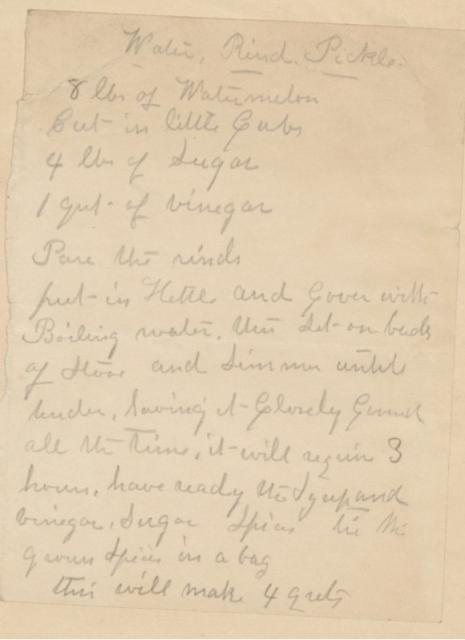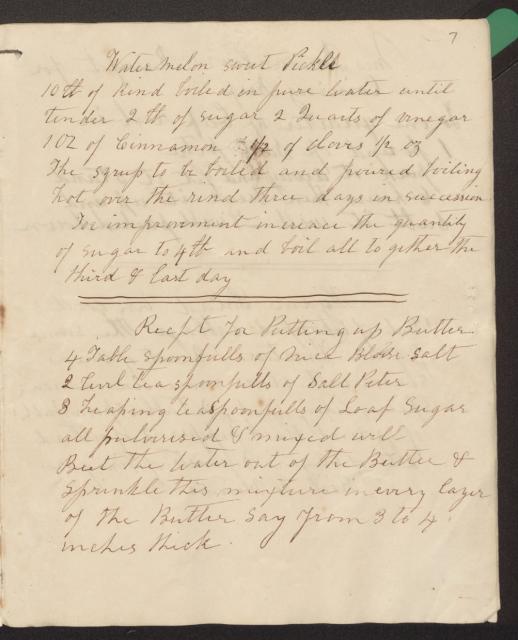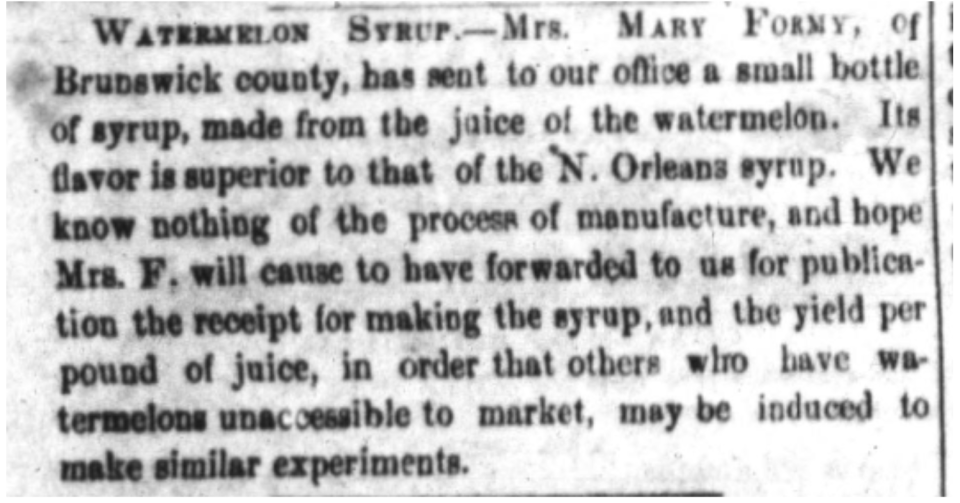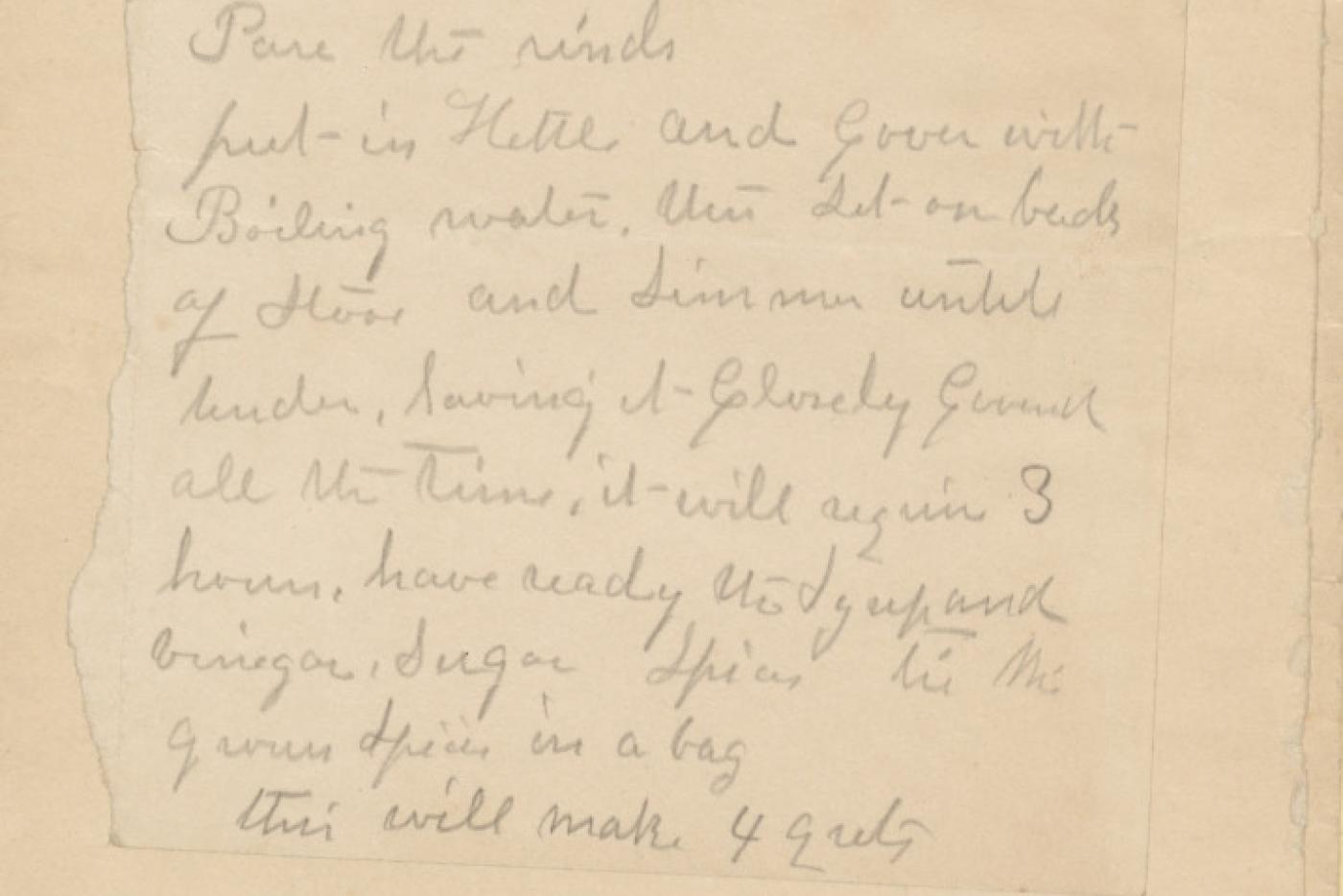Author: Chelsea Kiefer

On Saturday, August 2, America 250 NC Project Coordinator Dan Brosz, and Outreach Coordinator Chelsea Kiefer attended the Watermelon Festival in Murfreesboro, NC. They talked to members of the public about the America 250 NC initiatives, the anniversary happening on July 4, 2026, and events that will be hosted all over the state. The highlight for many of the younger attendees was spinning the trivia wheel and answering North Carolina questions to win a prize!
Why is North Carolina called First in Flight? What is the state bird of North Carolina? How many signers of the Declaration of Independence were from North Carolina? Why is North Carolina called First in Freedom? How many counties are there in North Carolina?

While researching before the festival, the team found a historic handwritten 1859 recipe for Pickled Watermelon Rinds in the State Archives of North Carolina's Lillian E. Dodd Collection. This felt like the perfect document to show an interesting way to use watermelon, the crop's place in North Carolinian culture, and how creative North Carolinians have been in the past to stretch food portions and preserve fresh crops before reliable refrigeration.

It’s also a great test in reading old cursive! (Having any trouble or want to test your skills after you try to transcribe the recipe? Check out the transcription on the archive’s website!)
Pickled Watermelon Rinds served two large purposes: first, by allowing the use of what would otherwise be scrap parts of the fruit, the recipe reduced food waste and allowed for additional items to be made from one harvest. It also was a way that North Carolinians could enjoy watermelon all year, even far out from the sweet fruit’s harvest season. For families who found it difficult to afford candy or treats, this recipe could be especially meaningful.
Though the fruit originated in Africa, watermelon has a long history in North Carolina. The crop grows exceptionally well in our region’s warm climate, sandy soil, and long growing season. The fruit became a large staple of both local diet and state’s economy. From backyard gardens to large commercial farms, watermelon has large roots in North Carolina’s agricultural heritage!

The next time you have a watermelon, think about trying this historic recipe at home! If you do, remember to post your #tasteofNChistory and tag #America250NC!

